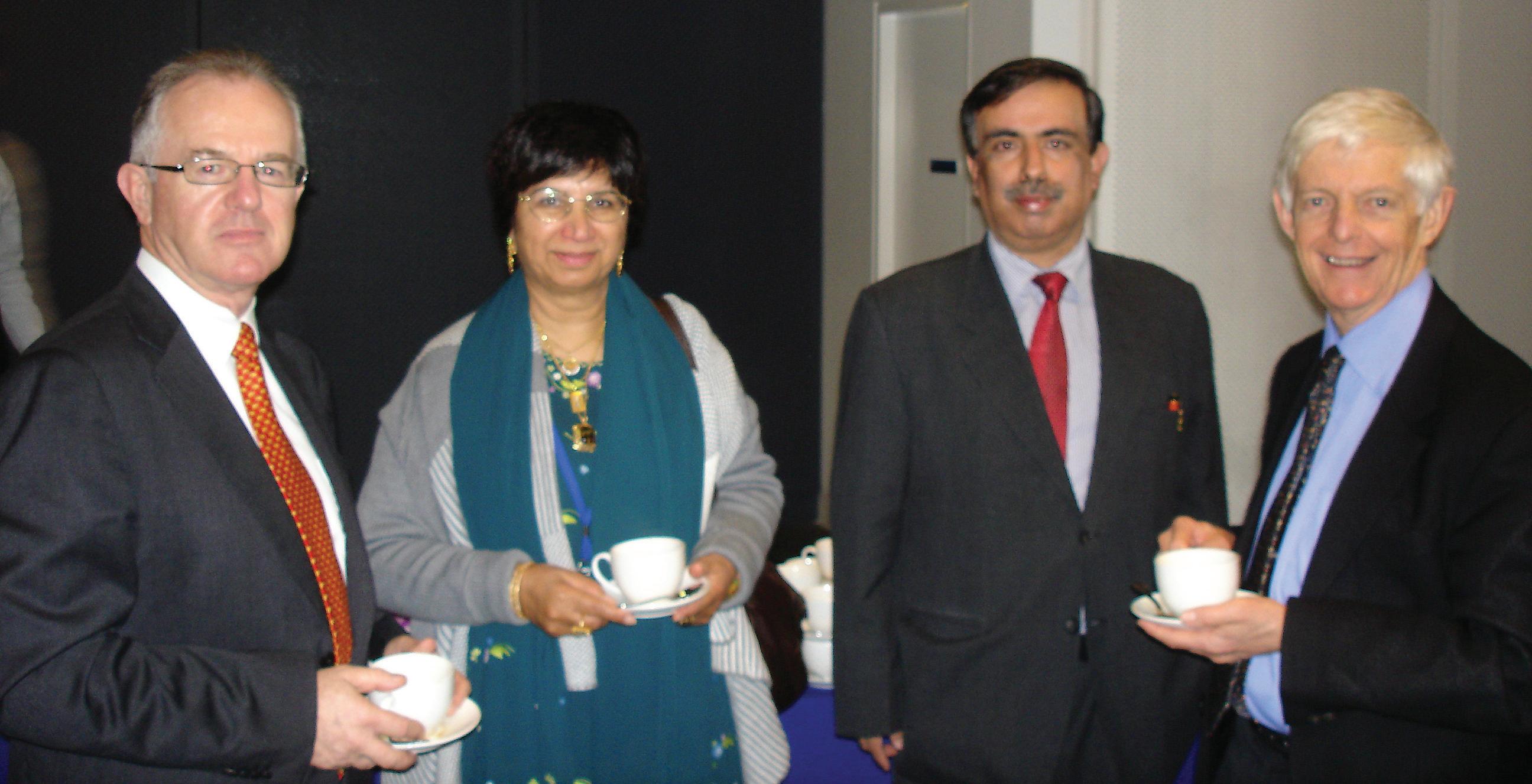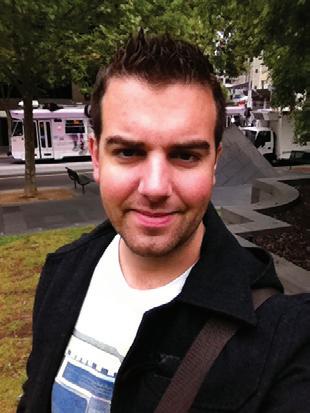
4 minute read
A region synonymous with turmoil
from 2011-07 Melbourne
by Indian Link
The University of Melbourne brings leading thinkers together to discuss South Asia: a complex puzzle of two besieged governments; a rising economy ridden with internal conflicts; misguided aggression; and a latent conflict ready to explode
BY TIM BLIGHT
The 2011 Festival of Ideas, held at the University of Melbourne between 13th June and 18th June, saw several leading thinkers and writers discussing South Asia’s identity, history and future. The afternoon was organised in conjunction with the Australia India Institute, a research, policy and training program established by the University of Melbourne in 2008.
The panel was chaired by Director of the Australia India Institute Professor Amitabh Matto. Speaking in the opening address, Prof. Mattoo related that “there are few regions in the world where violence, identity and conflict coalesce together with the same starkness or intensity… as they have in India, Pakistan and Afghanistan in the past sixty-five years or so.” He went on to explain that the complex puzzle of South Asian geopolitics have been subject to an almost exclusively Western view of history, necessitating more thought from South Asian thinkers.
Dr. Christopher Snedden of Deakin University spoke candidly of Pakistan’s confused national identity, related to being the youngest sovereign nation in South Asia, which he thinks is the cause of much distress. Discussing history, the military, Islam and resources, he explained the complicated and intertwined relationships of the region which provide unity and identity, as well as volatility and conflict. To the long list of defining identifiers, Prof. Mattoo added the growing issue of a massive youth population, which he suggested will be an asset or a liability depending on how it is managed.
On the point of nuclear weapons, Dr. Snedden described the potential consequences of a nuclear conflict as “horrendous”. He pointed the finger at the Kashmir dispute as being what he called “the seat of the problem”. Analysing the basis of Pakistan’s role in the region, Dr. Snedden pointed out that even the name Pakistan is part acronym for Punjab, Afghania and Kashmir, highlighting the Islamic republic’s strategic conundrum. He speculated on how peace can be assured in the ‘west South Asia’ region, saying that western meddling often seeks to provide an “occidental solution to an oriental problem”. Harking back to the Cold War nuclear deterrence will be what keeps the peace in the subcontinent.
Prof. Robin Jeffrey of the National

University of Singapore offered a balanced view of the identity of India and why Kashmir forms an integral part of both India and Pakistan. Prof. Jeffrey highlighted the complexity of the issue of Kashmir with an anecdote from his childhood where he concluded that Kashmir was mostly Muslim and therefore belonged to Pakistan. He then discovered, by way of other solutions”.
Prof. Samina Yasmeen of the University of Western Australia explored the Pakistani view of South Asia. She talked of the long-held Pakistani view that because both countries come from the same source, a sense of equality pervades the Pakistani psyche. However she also spoke of a rising Islamic awareness in Pakistan; she warned that dialogue on Afghanistan has been so fruitless in the past. “We persist in examining Afghanistan in isolation, as if it exists in isolation. So I think we’re on the right track today in seeing Afghanistan as part of a larger and much more complex puzzle”. She blamed Afghanistan’s multitude of political, linguistic, tribal, religious and geographic identities and fluid conversation with a relative, that India had a legal and emotional claim over Kashmir.
“Kashmir forms part of an identity of the Indian state – an Indian state which, at best… is secular, it recognises no distinction between religions, it treats all its citizens equally”.
Elaborating “The tragedy is that Kashmir is an integral part too of Pakistan’s identity”, he recalled Dr. Snedden’s point about the acronym ‘PAK’.
He suggested that the Shanghai Cooperation Organisation, or SCO, an organisation of Central Asian states, plus China and Russia could bring new regional solutions to the table for South Asia.
The growing political power of Central Asia, plus rising superpowers China and Russia, are interested in the potential of India, and equally India has aspirations for SCO membership, said Prof. Jeffrey. “The Shanghai Cooperation Organisation may provide a vehicle that allows a Pakistan, Afghanistan, India resolution… simply because it comes at the problem from a rather different perspective,” he theorised.
“Having China and Russia as major players may offer just a few more opportunities for of the dangers of a sense of assertiveness augmented by a superiority complex among some Muslim groups in Pakistan. She concluded that to move forward, the realities of Pakistan’s situation need to be accepted by both Pakistanis themselves and the wider world community. “The state and its view of itself and the relationship with the people will have to change” she affirmed. political environment for what she labelled a quagmire.
Samina Yasmeen
Regarding the Indian view of Pakistan, Prof. Yasmeen said that Pakistan often feels that its identity is not accepted by India. “You could argue that a lot of Indians have accepted Pakistan’s existence… but it’s always mixed with this sense of glee… and sometimes arrogance.” When this is interpreted in Pakistan, it turns into ‘Indian commitment to undo Pakistan’. She blamed this cycle of misinterpretation for continuing conflict, saying that “India needs to move in to a space where it accepts the need for respect for Pakistan, irrespective of Pakistan’s weaknesses and their problems”.
Award winning journalist and author Sally Neighbour opened her speech with an explanation of why she thought
However she identified some common goals for Afghans, regardless of their position: sovereignty, respect for the state, an Islamic-based legal and political system, peaceful relations with neighbours, particularly Pakistan, shared power and international assistance. Ms Neighbour claimed that while the idea may disgust some, no peace settlement in Afghanistan can be reached without Taliban involvement. She drew the distinction between the Taliban in Afghanistan, the Taliban in Pakistan and Al-Qaeda, pointing out that to engage the Afghan Taliban does not equate to dealing with terrorists.
The afternoon wound up with a panel discussion, a question and answer session and an afternoon tea. To watch the discussion online, or to view other events in the Festival of Ideas, log on to ideas. unimelb.edu.au.









